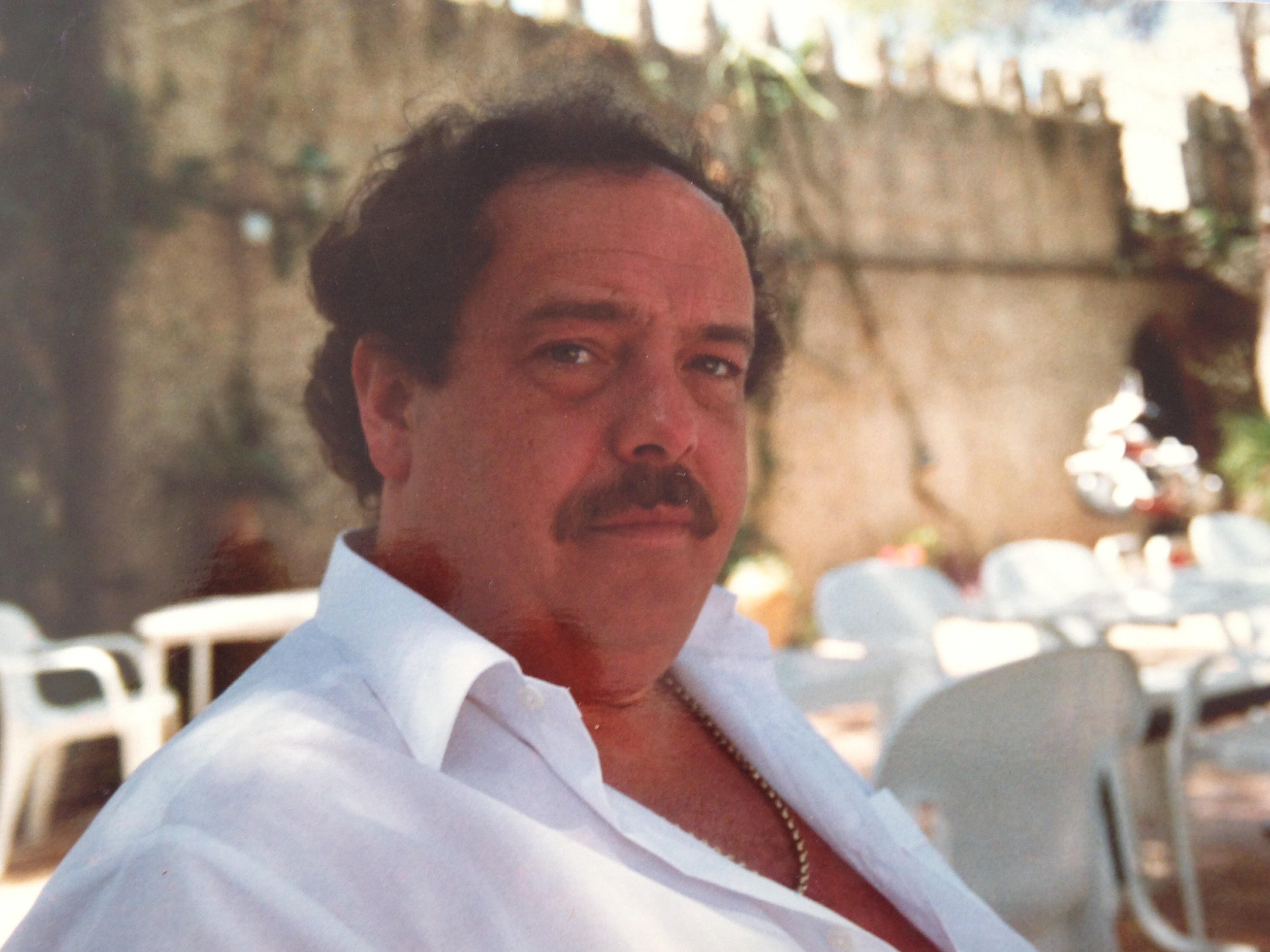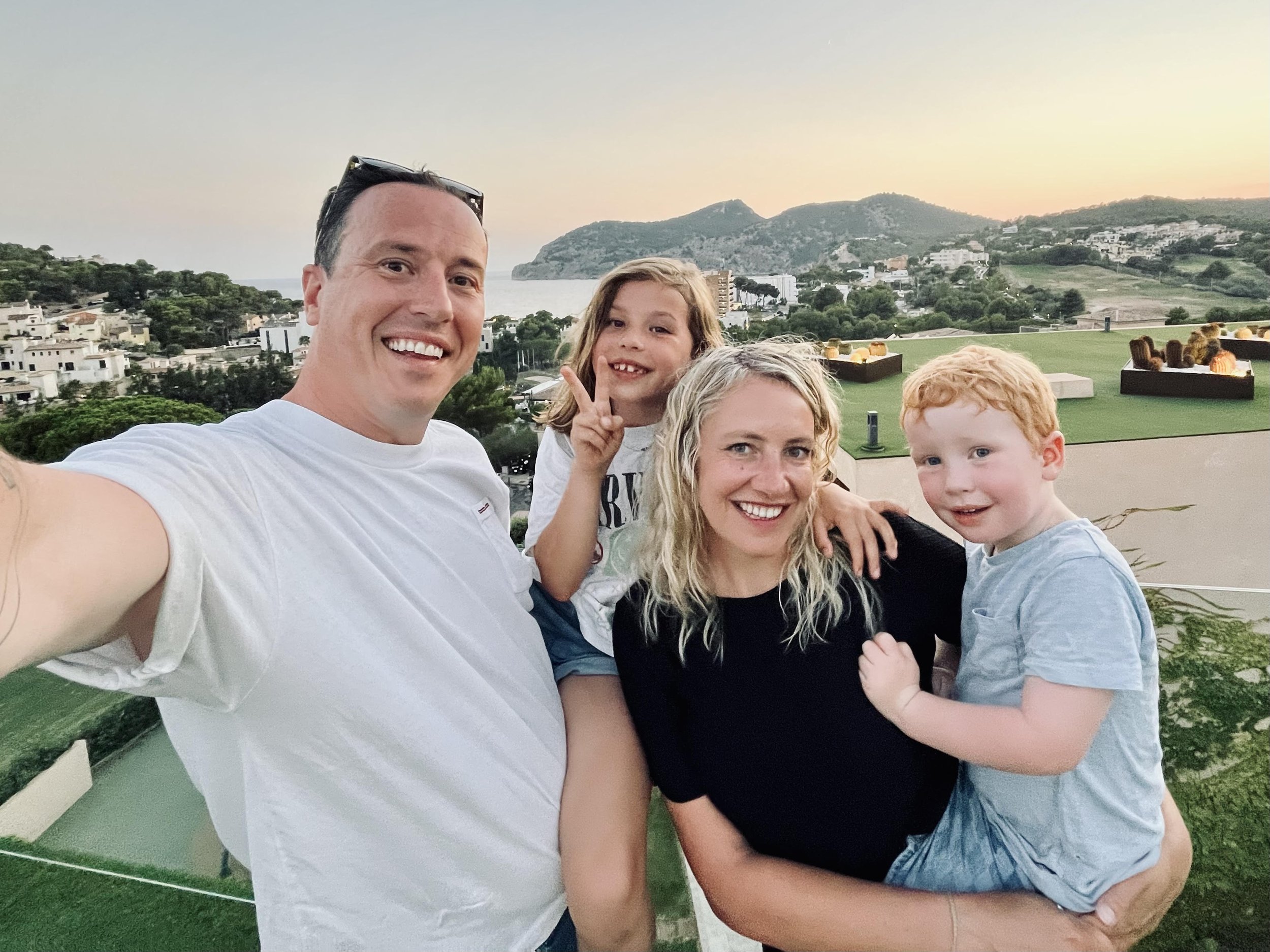Leading After Loss - Nick Stocker
My name is Nick Stocker, I’m 42 and I work for Red Bull Technology as the Group Commercial Director for both Oracle Red Bull Racing and Visa Cash App RB Formula 1 teams.
Like most young people, I didn’t really know what my career goals were. My mum was a hairdresser, my dad a plumber and I was the first in the entire family to go to University. I wasn’t in the mould of being “academic”, but I had a good combination of being street-smart and book-smart, with a larger dose of the first. We were a personable and social family, especially my Dad as a tradesman, who could speak with anyone on a variety of subjects for hours. I admired that and subconsciously tried to adopt and refine when I was growing up.
I opted to study Politics at Loughborough University and attempted to go in that direction, as something new. Suffice to say, I quickly realised that I was not a politician in any of its manifestations once I ended up working for a Westminster lifer... next came a few training courses at RMS Sandhurst, where I looked at becoming an Army Officer, I loved the training, but the rigidness was not for me.
I realised I needed a role that required using my personable skills and creativity, so I took a 6 month unpaid internship in PR, focusing on sport, which led to a paid position at Karen Earl Sponsorship, activating sporting sponsorships for large brands. At the time, a reasonably new industry. A few more years cutting my teeth in the agency world eventually led me to an in-house role at Freshfields managing their communications for London 2012, before moving to Deloitte to oversee their sports sponsorships. 5 years later, I was head-hunted to work for Scuderia Ferrari, taking my family to Italy for 2 years, before returning to Red Bull in 2020, during Covid.
There is no silver bullet, but by using my parent’s strong work ethic, my father’s legendary social skills and saying yes to every opportunity, I managed to progress step by step.
I lost my father at 24 and my mother at 32.
Alongside my sister, we were orphans. An odd word that I’ve never used before or since, but it sums up the unfamiliarity and uncertainty of that stage of life.
Both losses were very different and many years later I can start to see how this impacted me differently too.
Dad, who was 55, had a huge, and sudden, heart-attack in Spain on holiday, whilst I was just finding my feet in my career and in life. My mum was devastated. I had to go and re-patriate his body with my sister, whilst still largely in shock. I was the one phoning his friends to tell them the news, hearing grown men break down and cry. The suddenness, so shortly after his retirement seemed so cruel as he had just got into his stride of life, enjoying more time with my mum and his friends, with the burden of financially supporting my sister and I no longer present.
It was different with Mum. She had breast cancer when Dad was alive and beat it. However, when it came back eight years after being given the “all-clear,” it was much more aggressive. We sat with her for months at her bedside in hospital. The gift of being able to support her, share everything I wanted to before she died was balanced with seeing her deteriorate and witness the enormous mental gravity of someone facing their own mortality. The Royal Marsden nurses were angels, it must be said.
I often wonder what was worse, and honestly I can’t answer that. I had experienced shock versus time to prepare, I had felt regret and relief. There was responsibility and there was liberation, but all came with enormous pain.
How do you think your losses have impacted your career?
I take way more risks. I moved my wife and daughter to Italy for a job once Mum died. I was too focused on being safe, my industry reputation, my pension… But once the things that “will never happen to me,” happen to you, the equation becomes “what’s the worst that can happen?” and then “f*** it, let’s just do it.” This approach has manifested itself in many ways in my career and has certainly been more beneficial than not. I try to encourage my team to take more “calculated” risks and thankfully I work in an environment where that is largely encouraged.
Do you feel your losses have impacted you as a leader?
I have become less patient with time-wasters and pedants - not just in my career! Indecision and slowness are no longer something I can handle. A direct consequence of losing my parents is that, in my mind, when something can be done now, do it now. Whether the decision is right or wrong, make it, move on and enjoy the time you save from being pernickety. Mistakes are made by everyone at all levels, and they can be addressed, but irresolution robs us all of valuable time with family and friends. Plus you simply don’t know what tomorrow will bring.
Sometimes at work this can be seen as “obsessive” but in my mind, it is me striving towards life-balance, which cannot be achieved by sitting in an office procrastinating.
I miss calling my parents, to tell them what I have achieved. The largest successes in my career I have never been able to share with them, which is hard. But I always ensure that I am personable and approachable in my team. Even to the detriment of me getting my work done, I make time for everyone, whether directly in my team, a brand new face or family friend looking for advice about careers. Perhaps losses have moved me from being the disciplined-focused I once was, when looking at Army life, versus a more compassionate, laissez-faire leader now, interested in supporting and helping.
What top two pieces of advice would you give to a young adult who’s lost one or both parents?
Everyone’s experiences are so different, but I did two things that I think worked for me… I say “think” as I have good and bad days even now...
Firstly, I threw myself into something. I needed somehow to focus my pain, and later grief. Initially, it was an hour each morning at the gym, when Mum was ill.
This was an emotional outlet more than anything and I felt I could be strong for her because I’d rid myself of my anger and emotion in the gym. When she passed, this naturally become part of my grieving process too. With friends who’d been through the same pain of loss, we agreed to learn to row and cross the widest part of the English Channel for cancer charities, rowing 50 miles and raising £50,000. But the key was about finding my own “focus”. I just needed something to set my mind on and to achieve something good.
Secondly, I had to recognise that “positives” and “opportunities” come with death. If I allowed myself to fall into the abyss of pain and suffering, I am not sure I would have come out. Positive is perhaps not the most associated with loss, but I turned the missed weekends with parents into opportunities to create memories with my wife and daughter, I saw the anger as “energy” that I could simply convert and use to power my way towards a healthier lifestyle, taking-up cycling, Ironmans and being much more conscious about my diet and work-life balance, which if adopted by my Dad could have given him extra time. And I made a conscious decision to prioritise my time with people who radiated positivity.
Anything else you’d like to share?
Don’t beat yourself up for forgetting. Honestly, I have missed dates, anniversaries, birthdays. I’ve forgotten holidays, sounds of voices, conversations. At first, there is deep, deep guilt. But as you grow and as time moves on, you realise this is simply a natural human condition and it doesn’t mean you love your parents any less. All those qualities and memories that you yearn for actually exist and live on in you!



